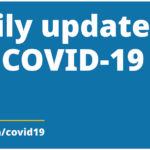COMMENT: Government has bad case of cold feet on local election rules
Whales have shorter gestation periods. For the third time since the Local Government Elections Task Force tabled its report, the B.C. government has been stricken with a case of cold feet.
In 2010, the task force made 31 recommendations to improve local democracy, including: setting campaign spending limits for candidates; requiring all election advertising to disclose who paid for it; and requiring financial reports to be posted online through Elections BC.
Two months after the Task Force tabled its report, the government said it would proceed with the recommendations in time for the 2011 elections. Those elections came and went.
Ida Chong, minister at the time, confessed that the Union of B.C. Municipalities and other groups “may be disappointed” by the government’s inertia.
Last year, the government promised that the recommendations would be in place for the 2014 elections.
This April, then deputy minister Don Fast, went so far as to write: “The Ministry of Community, Sport and Cultural Development is conducting the work necessary to implement the recommendations of the Local Government Elections Task Force in time for the 2014 elections.”
But last month the government got cold feet. Again. Most of the recommendations may be put into law, but not all.
Notably, the government has chosen not to proceed with campaign spending limits in favour of yet more consultation, even though the task force received more than 10,000 written submissions during its 2010 review.
It would seem B.C. voters need to steel themselves for another round of grossly obscene campaign spending during the 2014 local elections.
Just how gross? In the 2011 election, Vision Vancouver, the NPA and COPE collectively spent $5 million. That’s roughly $12 for every eligible voter.
Contrast that with a candidate running for councillor in Montreal who can spend all of 30 cents per voter, a candidate for mayor 38 cents. In Toronto, candidates have a limit of 85 cents per voter. In Regina, the overall limit for a mayoralty candidate is $65,000 and a councillor $11,000.
And it’s not just in Vancouver where campaign spending is over the top. Had Regina’s limits been in place for the mayor’s race in Victoria adjusted on a per voter basis, the cap on election expenses would have been $26,120. Dean Fortin spent nearly three times that getting re-elected in 2011.
If local campaign spending is obscene, it only follows that candidates need to fall back on contributors with obscenely large wallets to pay the bills. And fall back they did. In the 2011 elections, the single largest donation was $960,000 courtesy of local land developer Rob Macdonald to Vancouver’s NPA.
To put that sum into context, it’s more than double what Naheed Nenshi spent on his way to winning the mayor’s chair of Calgary in 2010. Calgary has nearly a quarter of a million more voters than Vancouver.
It’s why most provinces have strict rules over who can give to a campaign and how much they can donate. In Montreal the annual cap is $300, in Toronto $2,500, Winnipeg $750 and $5,000 in Calgary.
In Quebec, you can only donate to a candidate who you can actually vote for. So if you live in Sherbrooke you can’t donate to a candidate running in Montreal. In Ontario and Manitoba you have to live in the province to donate to a candidate.
But in B.C. a donor doesn’t even have to live in Canada to cough up as much cash as they want, resulting in the bizarre case of American corporations donating to a candidate running for city hall in the Lower Mainland.
Strangely though, the task force was opposed to setting restrictions on campaign donations, despite the fact that numerous councils and groups called for a cap on donations and a ban on corporate and union donations, positions that were supported at the time by an overwhelming majority of British Columbians.
According to a 2010 public opinion survey conducted by the Mustel Group, 74.5 per cent of respondents felt there should be a limit on how much any one person can donate to a local election campaign and two-thirds supported a ban on corporate and union donations.
And now it’s time for the government to get over its chronic case of cold feet and adopt the task force’s 31 recommendations. By all means consult on other issues, but expense limits isn’t one of them.
As the task force itself noted: expense limits increase accessibility and fairness. And who could possibly oppose either?
Dermod Travis is the executive director of IntegrityBC. www.integritybc.ca



























Comments